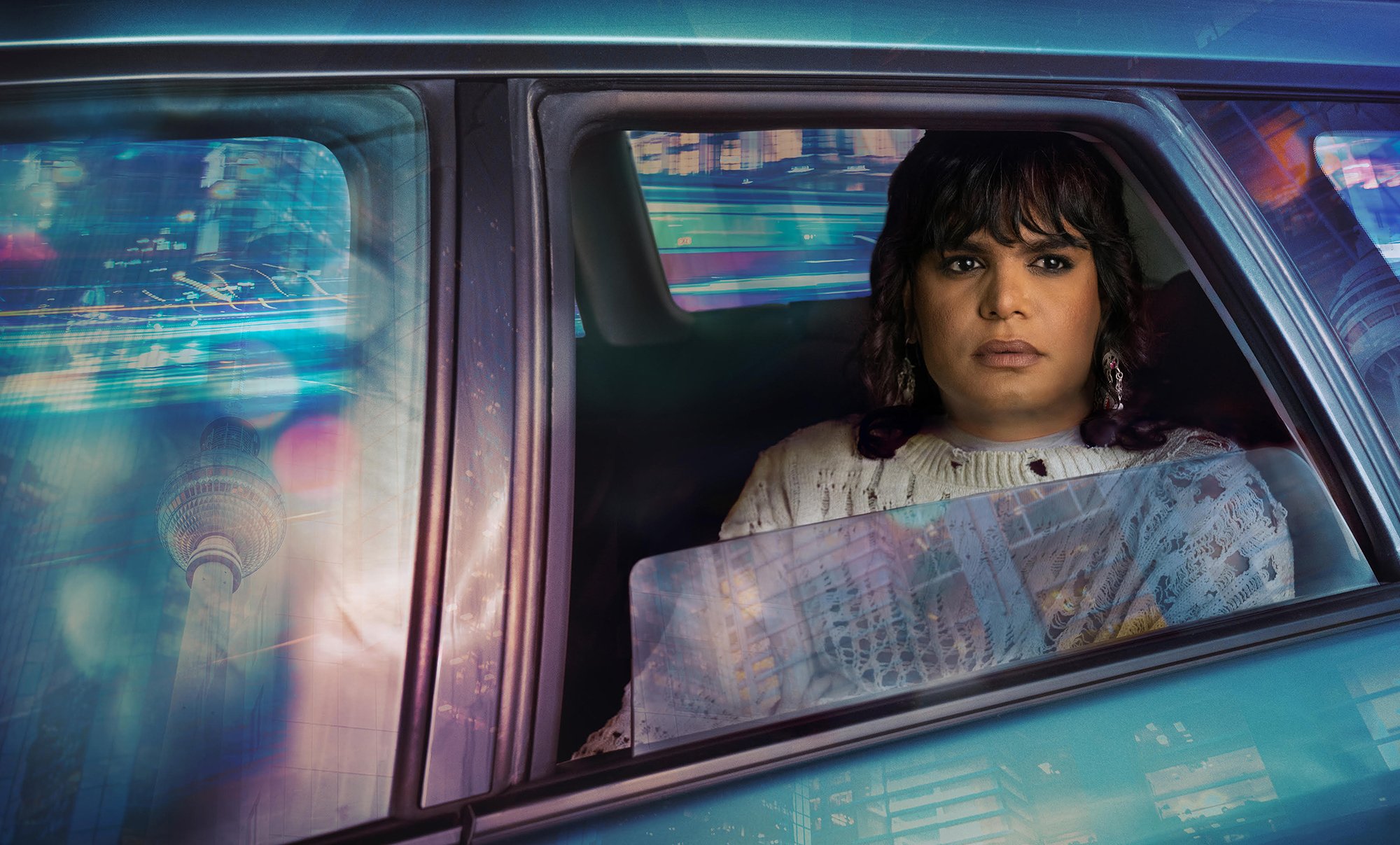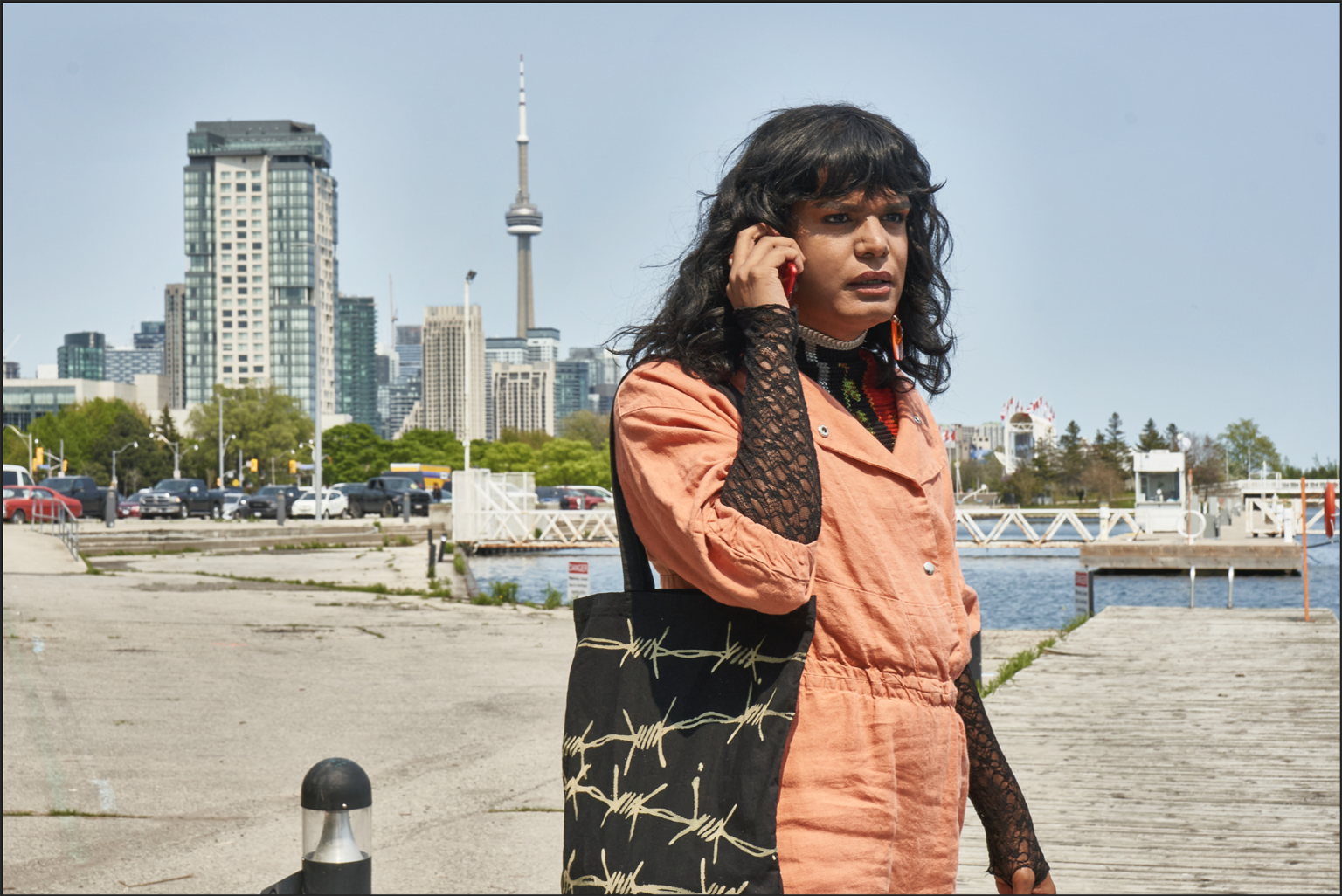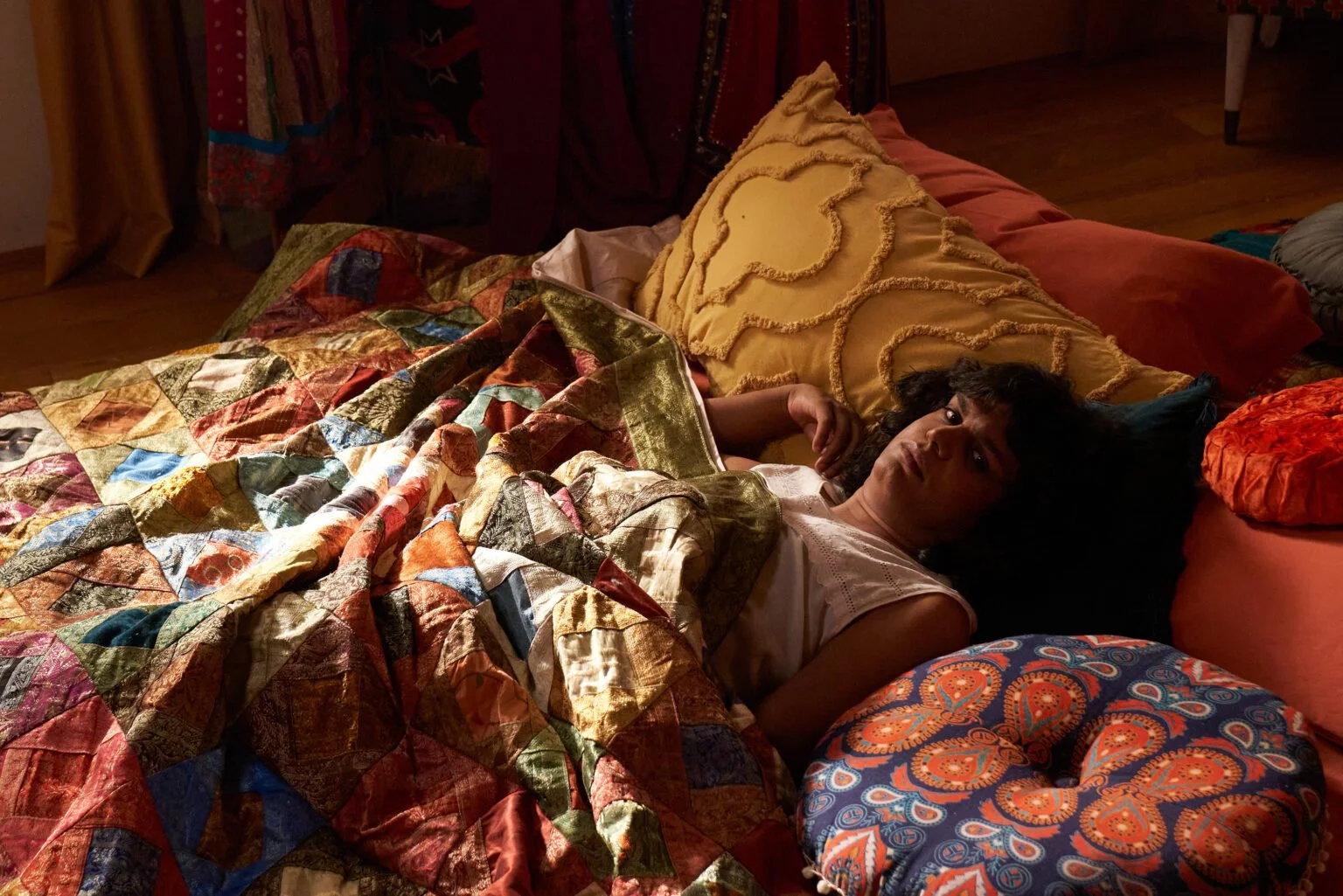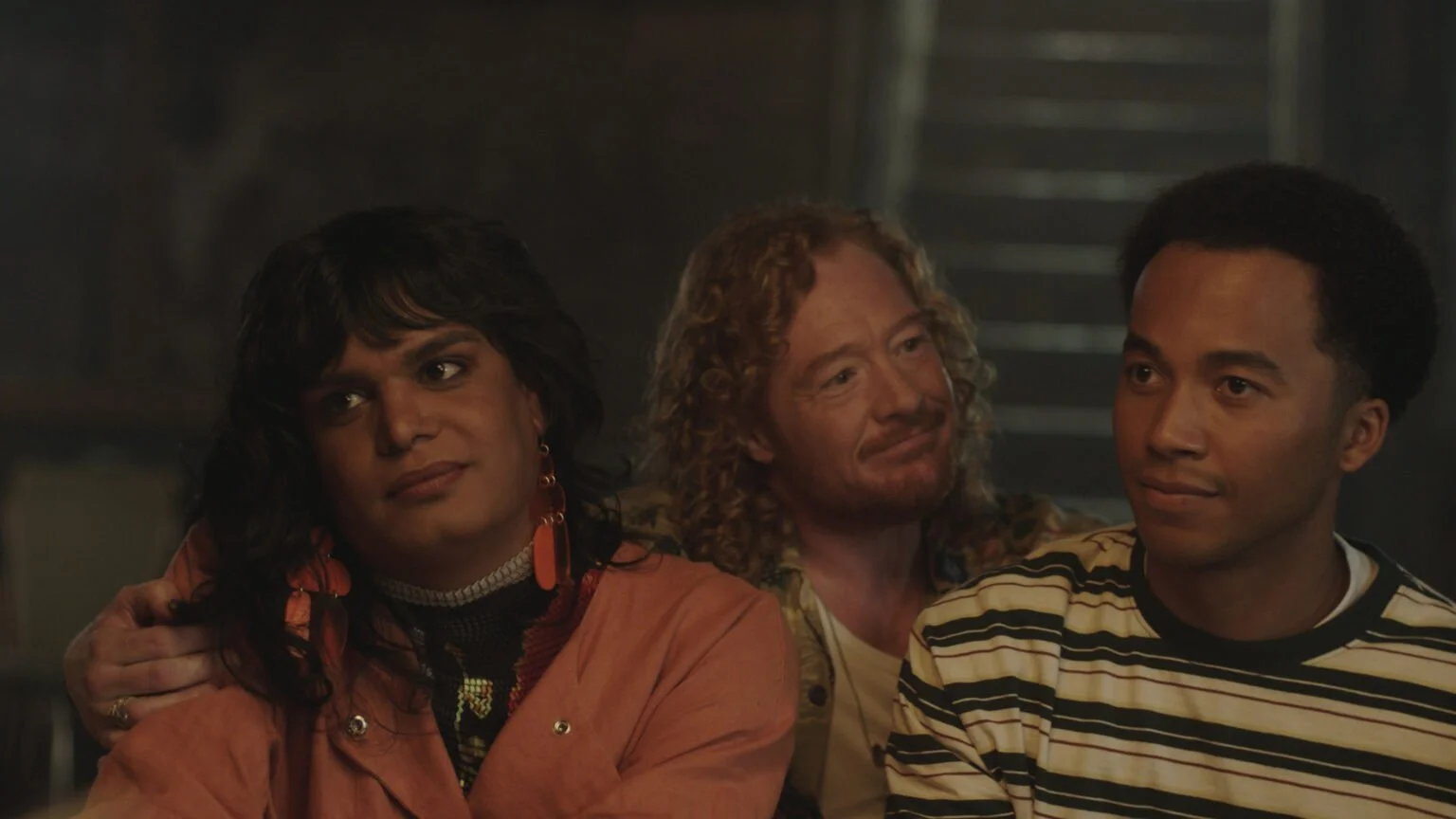Bilal Baig on Sort Of’s Bittersweet End
With the third and final season of CBC Gem’s “Sort Of” premiering on November 17, it feels a little too soon to say goodbye to the boundary-breaking sitcom.
Bilal Baig in Sort Of. Photo: CBC Gem.
With the third and final season of CBC Gem’s Sort Of premiering on November 17, it feels a little too soon to say goodbye to the boundary-breaking sitcom that told a story we so rarely see on television: that of a South Asian non-binary millennial experiencing transition in every sense of the word, from family to love to career, in Toronto. This very Canadian story also found a popular home in the U.S., where it airs on HBO Max.
The short-lived but beloved series made a star out of creator, writer, and star Bilal Baig (who has worked alongside co-creator Fab Filippo). The Mississauga native and Pakistani creative is the first queer South Asian Muslim actor to lead a Canadian primetime television series, which earned seven Canadian Screen Awards earlier this year, and a Peabody Award. Meanwhile, at this year’s TIFF Trans Filmmakers Summit, Baig received the CMF Trans Barrier Breaker Award.
In its final season—spoiler alert—we see Baig’s Sabi Mehboob handle the grief and freedom they feel following the death of their father. It also pushes them to face questions about their identity, particularly as they find themselves on the precipice of “making it” in their own way. After two seasons of endless transition, we see Sabi, their friends and family, experience a promising rebirth.
Not incidentally, it’s one Baig is experiencing too, in a way, as they embark on a “bittersweet” departure from always vibrant and moving Sort Of, and return to the theatre world, where they got their start as a writer with their first play, Acha Bacha, back in 2020.
Below, we speak to Baig about wrapping up Sort Of, exploring transition through the lens of grief and the importance of living for themselves.
Bilal Baig as Sabi in Sort Of Season 3. Photo: CBC/Michael Gibson.
What led you to decide this is the right time to wrap up the series?
If there was a single kind of defining moment, it would be so much easier to talk about. But it was a collection of moments that led to this decision. Fab and I felt, even before Season 1, that a show like this might be great for audiences who want it to go on and on, but on a creative level, there’s something about the magic of the show being contained in something that’s not forever. I would never want the story to feel artificial, because we’ve done such specific work on telling a truthful experience for all of these characters. Before going into writing the third season, we did a lot of reflecting on the two seasons before. It felt right that we can watch the fallout of some of Sabi’s choices, the aftermath, and watch them navigate the repercussions. It led us to some really beautiful discoveries about this overall theme of transformation, rebirth, reclaiming yourself or who you think you are. The simplest answer is that it felt right. When you see the third season, it’ll be pretty heartbreaking, but there’s a real beauty to the finality of it.
You touched on this a little, but can you share more of what it was like getting the writing team together, and finding ways to wrap up each narrative?
In some ways, it was the easiest, weirdly, even though it was incredibly challenging. I never want to make it seem like putting the show together is an easy thing. But the writers had the foundation of the past two seasons to build and play off of. We weren’t searching for tone as much because everybody was really inside of it already. There is a lot of fun, a lot of mischief, a lot of playfulness in this season, and the characters definitely get into trouble. Also, I’m really proud of how we explored grief and the undercurrent of it, and how that might change you. it’ll always be a comedy, but it really felt like we were just letting the characters be. It has a different kind of energy this season than the past two, and that feels cool; it kept changing and we didn’t rest on what we understood worked.
Bilal Baig as Sabi in Sort Of Season 3. Photo: CBC/Michael Gibson.
You’ve explored transition at length, and this time, through the lens of grief. Did you come to this from personal experience?
Working with writers who have way more experience than I do is such a gift and extreme pleasure. I feel like everyone had their own way into the storytelling this season, and we didn’t want to be simplistic about it. You know, it’s not always grief equals sad. Grief can also equal possibility or a strange sense of clarity about who you are. Those are layers that felt more like our show. It was emotional for sure, but we had a lot of fun, too.
In South Asian families, we mourn loudly, but at the same time, we keep a lot of the details of our grief close to the chest in fear of judgment. In Sort Of, that pain is refreshingly on display. And while we often feel we have to live for our parents, Sabi starts living for themselves this season. Was it an intentional choice to square your culture into the narrative that way?
I had the immense pleasure of working with South Asian writers all throughout the three seasons. I can’t help but think of Ian Iqbal Rashid (This Life, Touch of Pink), who has been with us all three seasons, and wrote two of my favourite episodes this season where the brownness, the transness, the gender, the culture, and the expectations all mash together. Because we established that language in Season 1, it became exciting to all of us to present these characters negotiating these things all at once, all the time.
In the writer’s room, it was also a lot of mom-sharing. Ian would talk about his mom, I talked about mine, Fab talked about his Italian mother – I learned that Italians and South Asians share a lot of parallels! It’s been a personal show for all of us in so many ways. At the same time, what makes it work for me is that there’s a lot of freedom to be creative. Not every single thing that happened on the show is true to my life, but I get to hide behind it a little bit. That’s why I’m in this business, it’s creative and imaginative. Otherwise, I think I’d just be doing TED Talks all the time.
“I’m really grateful that we still chose to tell a story about a South Asian mother and her child coming together. I really wanted to put that image out into the world, even though [my mother and I] are still figuring it out. I think, even years from now, that will probably still be something we’re reflecting on together as a family.”
Which I think we’d all be thrilled to see. Now, you mentioned your mom; we see Sabi’s relationship really evolve with their mother. How has your relationship been with your mother throughout the show?
I’ve heard from South Asian families, where people have shared that they’ve watched the show with their parents, which is pretty major. For me, it hasn’t been exactly that experience. We definitely don’t watch the show together. For us, that relationship is evolving…it’s not a complete disaster. But also, I think there’s a realness in that the show hasn’t necessarily brought us together to bond more. And the fact is, I’m not destroyed by it.
One of the things I love about the family I grew up in is the way it takes us time to think through our feelings, and I think that’s what’s going on. I’m really grateful that we still chose to tell a story about a South Asian mother and her child coming together. I really wanted to put that image out into the world, even though [my mother and I] are still figuring it out. I think, even years from now, that will probably still be something we’re reflecting on together as a family.
Speaking of exciting moments this season, we’ve got two big cameos to look forward to: writer and actor Angelica Ross (American Horror Story, Pose) and poet and public speaker Alok Vaid-Menon. How did those come together?
So, Alok moderated a panel for us, at Just for Laughs for Season 2, and so that’s when Fab and I really got to know them a little better. We’d been struck by Alok’s thinking and brain and heart for a while and we definitely reference some of their work. They were really cool enough to say yes, and…since then, we’ve really gotten to know each other on a more personal level.
Then, for Angelica’s role, we sent out a call across the country looking for a trans woman of colour over the age of 40. I suggested Angelica, because I knew she was a fan of the show, she had been in my DMs saying lovely things about the emotional world of the show, and so I thought, well, we won’t be able to get her but she could be perfect. Then, lo and behold, she said yes as well. It wasn’t our intention to end up with both of these guest stars in the season, but it feels really great to have two exciting and different trans voices in our community.
Bilal Baig (Sabi), Becca Blackwell (Deenzie) and Raymond Cham Jr. (Wolf) in Sort Of Season 3. Photo: CBC/Sphere Sort Of 3 Inc.
Let’s jump back into the narrative, because I’m excited for what’s coming. It’s nice to see Sabi enjoy success, with their new bar venue, and the aftermath of their kiss with Bessie. From where the series started to now, all these elements have me wondering, is Sort Of’s message essentially that not everything in life is always ordered or neat? That mess is necessary?
One of the things that really excited me about getting to tell the story in our times right now is that this feeling of unknowing is also a trans experience. I think we we’ve been siloed, maybe, as these communities that really know themselves and can change things about themselves because of that. But I was like, ‘Oh my god, my friends and I, those are not the conversations we’re having about each other.’ So that felt really cool to offer in this season, that while going for what you want, you might discover a bunch of things that you didn’t want, and that’s the confusing way life just is.
Finally, I know you can’t share just yet about what’s next for you, but how does it feel to return to theatre?
It feels just as challenging. I think I’ll continue to dance across the mediums, and that will probably be really good for me.




